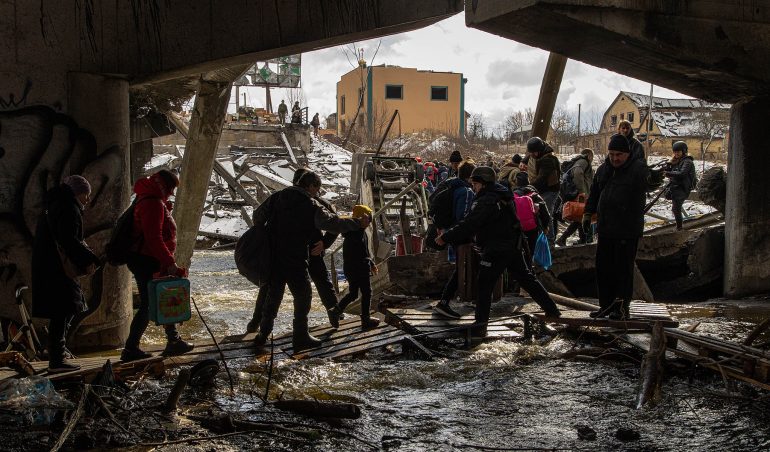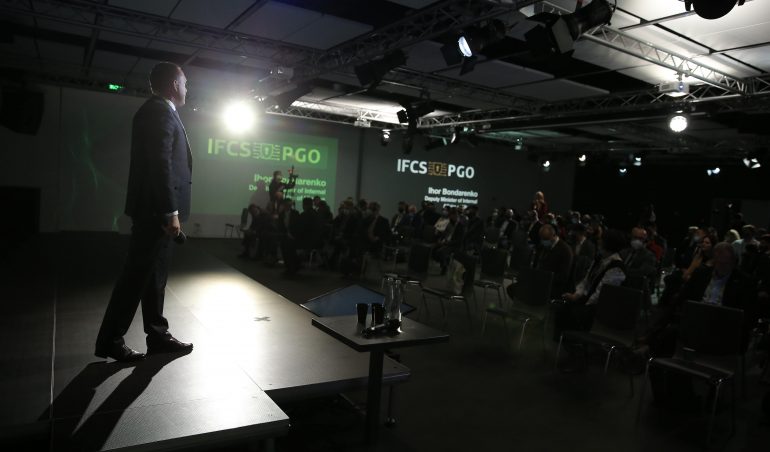#ObverseandReverse: Prosecutorial reform, the two sides of the coin
November 09, 2021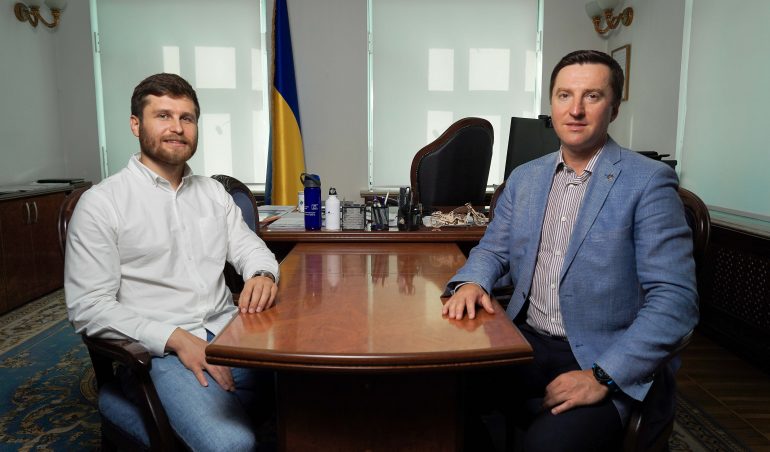
Today we are starting a new series of interviews, ‘Obverse and Reverse’, where we invite a representative from the establishment, on the one hand, and an expert from civil society on the other, to show that besides coming from different backgrounds, they often have more in common than differences. This episode is dedicated to prosecutorial reform, and we are very grateful to Oleksii Boniuk, Head of Criminal Law Policies and Investments Protection Department, Prosecutor General’s Office and Volodymyr Petrakovskyi, Professor at Kyiv-Mohyla Academy, expert of the Center for Political and Legal Reforms, for kicking off the series.
Olena Kushakovska, EUAM: What do you consider the biggest challenge (problem) in your work?
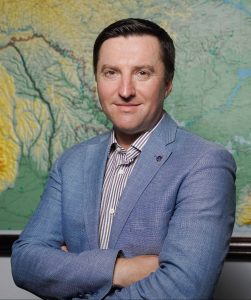 Oleksii Boniuk: The biggest challenge in our work has already been transformed into a number of opportunities for reform in the Prosecutors’ Office. In this way, we take care of the re-attestation of prosecutors at all levels, and the sector that concerns the change of the rules of work of prosecutors in general. However, I cannot say that these are challenges. These are huge opportunities to build a European-style Prosecutors’ Office.
Oleksii Boniuk: The biggest challenge in our work has already been transformed into a number of opportunities for reform in the Prosecutors’ Office. In this way, we take care of the re-attestation of prosecutors at all levels, and the sector that concerns the change of the rules of work of prosecutors in general. However, I cannot say that these are challenges. These are huge opportunities to build a European-style Prosecutors’ Office.
OK: What is needed to solve this problem?
OB: We need to continue fruitful cooperation with our partners, one of the most important of which is the European Union Advisory Mission. We must focus on modern methods of organising reform processes. An example is the introduction of a new mechanism for evaluating the activities of prosecutors. We proposed to evaluate the activities of prosecutors in two cycles: annually (taking into account the constant performance of the prosecutor) and for four-year period (to assess the quality of work).
We propose to introduce a peer review principle, when a more experienced prosecutor can provide expert assessment to a less experienced one. To this end, we are developing a quality standard for prosecutors that will meet industry standards.
OK: What can be your contribution to solving this problem?
OB: Our contribution as a unit responsible for the reform of the Prosecutors’ Office is that we can coordinate the efforts of experts and civil society representatives. We are currently developing a concept for the development of criminal justice and law enforcement, which is a new initiative of Prosecutor General Iryna Venediktova. The ideas we put into the concept can bring us closer to the desired justice that society seeks. The Prosecutors’ Office is gradually changing the awareness of what can be a real indicator of effective work. In our opinion, a court sentence could be such an indicator.
OK: Your best advice for your opponent.
OB: There is a number of sectoral platforms where we openly discuss the activities of the Prosecutors’ Office, because it is through openness and transparent communication about one’s activities that we can win citizens’ trust. We have begun work on introducing specialisation, in particular in the area of crimes committed against journalists and civil society activists, and combating domestic and gender-based violence.
OK: What do you consider the biggest challenge in your work right now?
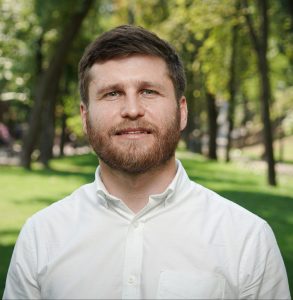 VP: I agree with Oleksiy that the biggest challenge for the Prosecutors’ Office, for civil society, and for the expert community, which is involved and supports the reform of the prosecutor’s office, is the transition from a Soviet-style to a European-type Prosecutors’ Office. This process is long, and it began even before the appointment of Irina Venediktova as Prosecutor General. The biggest challenge, in my opinion, is to change the management and governance model of the Prosecutors’ Office. This is a very complex and long process.
VP: I agree with Oleksiy that the biggest challenge for the Prosecutors’ Office, for civil society, and for the expert community, which is involved and supports the reform of the prosecutor’s office, is the transition from a Soviet-style to a European-type Prosecutors’ Office. This process is long, and it began even before the appointment of Irina Venediktova as Prosecutor General. The biggest challenge, in my opinion, is to change the management and governance model of the Prosecutors’ Office. This is a very complex and long process.
OB: Prioritisation is another challenge for the criminal justice sector today. The Prosecutor’s Office has some priorities, while the State Bureau of Investigation has different priorities. Therefore, we are working to establish coordination between all participants in the criminal justice sector. It may be necessary to sign joint documents, strive for a common vision, but I think it will significantly improve inter-agency cooperation.
OK: What is needed to solve this problem?
VP: In addition to coordination, it is important to establish partner relationships between all participants, to involve as many stakeholders as possible (including independent experts) in the discussion of priorities.
OB: I think it is very important to involve academic representatives, who, taking the practice into account, will be able to play one of the key roles.
OK: What would be your advice for Oleksii?
VP: Instead of advice, let me support the Prosecutor General’s recent initiative to restore prosecutorial self-government. In this context, I would advise to move towards its implementation as soon as possible, because I think this is one of the most important components that the Prosecutors’ Office lacks, including to become a European-style Prosecutors’ Office.
OB: There is a huge need for quality developments, for example in the development of an Institute of Integrity. We are faced with the fact that it is completely missing in the legislation. When we unite around the quality content, I think we will produce great results. This will increase both the trust and the importance of the Prosecutors’ Office in the eyes of both civil society and state institutions.
VP: One of the most important components of the activity of the Prosecutors’ Office is the prosecutors’ self-government and the Qualification and Disciplinary Commission of Prosecutors. The Code of Ethics will be approved by the All-Ukrainian Conference of Prosecutors, i.e. all representatives of the profession. Let’s see how it works, and let’s give our assessment later. In this process, it seems to me that dialogue and interaction within are more important than how this standard will look on the outside.
OB: We are very much counting on the help of the scientific and expert community. The notion of ethics has significantly transformed. In general, we have a chance to build the new Institute of Integrity in Ukraine.


